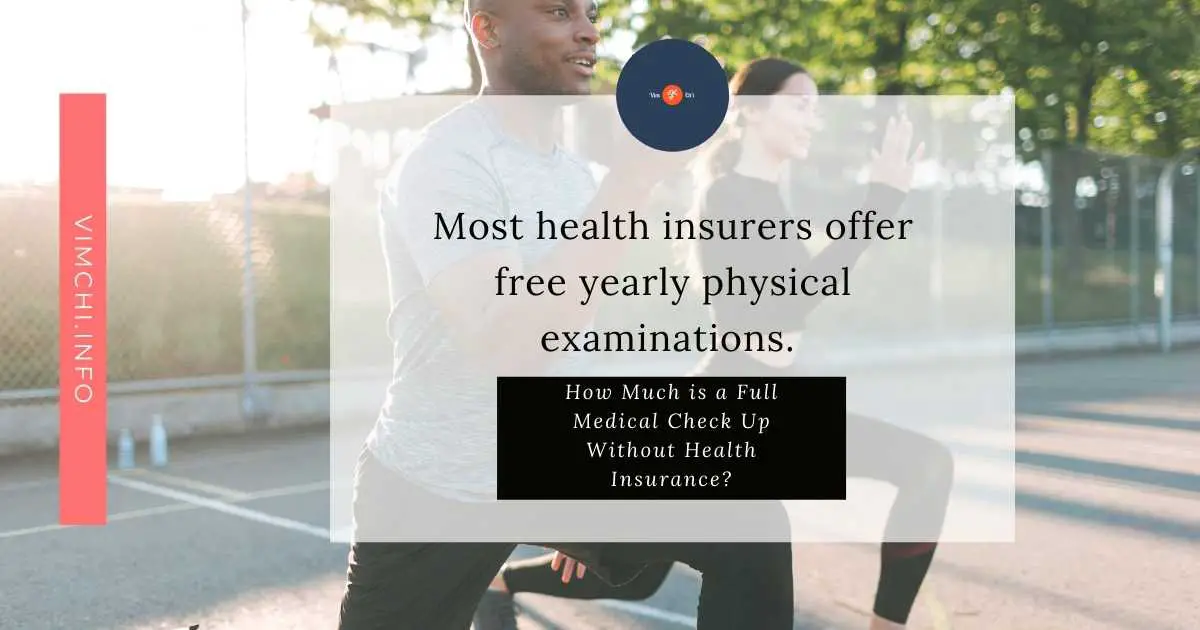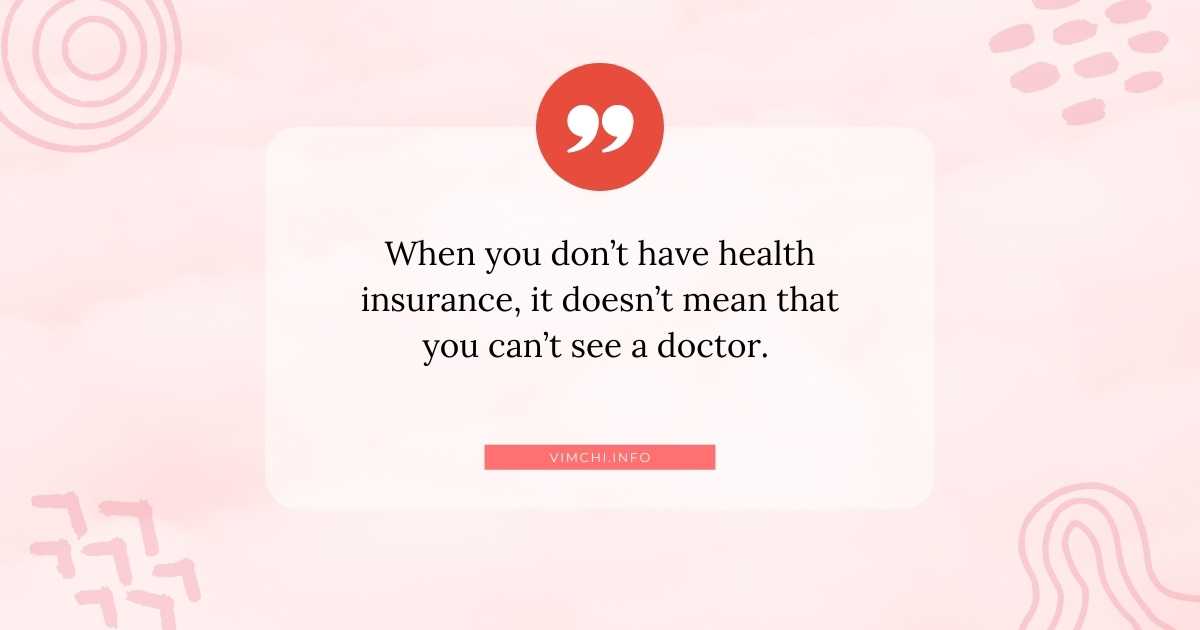
A yearly full medical check up is necessary to monitor your health. If you have underlying conditions, they may not show up with symptoms. But they can be seen during a physical examination. Although this is vital for your health, can you undergo it without health insurance? How much is a full medical check up without health insurance?
Keep reading to know more.
How Much is a Full Medical Check Up without Health Insurance?
Most health insurers offer free yearly physical examinations. However, if you don’t have a health plan, expect to pay between $50 and $200. The national average is around $199.
Even though the Affordable Care Act requires insurance carriers to include some preventative screenings, plans that existed before the act are not required to provide these requirements. Furthermore, some plans are not required to cover additional tests and services.
Some hospitals offer comprehensive low-cost options for uninsured patients. These may include blood work, physical examinations, and PAP smears. You may also sign up for a yearly membership program to lower the cost of health services, even without insurance.
Large pharmaceutical corporations also offer patient assistance programs that can assist patients to receive free vaccines.
If you belong to a low-income family, you may not afford health insurance. But you may be eligible for discounts through some hospitals.
Read: Is It a Good Idea to Skip the Medical Tests?
What Does General Check-Up Include?
As mentioned, a general check up can help in identifying early signs of health issues. During a medical check, your doctor will discuss your medical history, family history of disease, and lifestyle. A general check-up may include the following:
- Check blood pressure. If you’re under 40 years, your blood pressure must be checked every two years. However, if you have a family history of hypertension, the monitoring is more frequent.
- Blood tests. These would include checking your blood cholesterol levels.
- ECG. It’s a non-invasive medical test that can detect heart abnormalities.
- Obesity test. Your doctor may check your BMI and waist measurement. It is done every two years.
- Test for diabetes. It includes a fasting blood sugar test. This is necessary if you have a family history of diabetes or if you have slightly elevated blood glucose levels.
- Health check for colorectal cancer. This includes a fecal occult blood test. It utilizes chemicals to check for any blood in the bowel, which can be a sign of colorectal cancer. This test should be done once every two years if you’re over 50.
- Check for eye conditions. Your eyesight deteriorates with age. Thus, it’s necessary to undergo an eye examination every year.
- Check for bones. Both men and women will experience osteoporosis. People over the age of 50 must be assessed to determine the health of their bones.
- Breast cancer screening. Also known as a mammogram, it’s the best way to find out if you have breast cancer. Early detection reduces deaths.
- Cervical screening. Instead of a Pap test, women will have to undergo a new cervical screening test every five years. It’s more accurate and it can detect the human papillomavirus.
- Health check for men. It is a good idea to undergo regular health checks, especially for your prostate.
Read: Will Health Insurance Save Me Money?
How to See a Doctor When You Don’t Have Health Insurance?

When you don’t have health insurance, it doesn’t mean that you can’t see a doctor. However, it’s not that simple. For one, the healthcare system is expensive for the uninsured. Thankfully, though, there are a few options available for you.
You must not avoid going to the doctor because of the lack of insurance or cost. If you postpone getting medical care, you’re only increasing your risk of worsening your health condition. Here are some places you can go to receive medical treatment.
Read: How to Select Health Insurance Plans?
Community Health Clinics
They are available in your area. Some treatments are free while others are available at low cost. These clinics offer necessary medical care for individuals. These would include preventive screenings and vaccinations.
These clinics may also let people pay on a sliding scale according to their income.
Walk-In Clinics
These clinics are available for more routine issues. If you don’t have insurance, you can pay in cash. You can see a medical doctor for minor issues and you are billed for every visit.
Unfortunately, not all walk-in clinics offer affordable medical services. Thus, make sure to ask what the cost will be like upfront.
Although some of these walk-in clinics offer reduced medical services, others can help you apply for low-cost health insurance.
Cash-Only Clinics
As the term implies, these clinics only accept cash and cater only to the uninsured. They are also known as direct care providers or concierge clinics.
Emergency Room
If you need immediate medical care, you can go to the hospital emergency room. Hospitals can’t refuse care because you don’t have health insurance.
It’s especially true if it’s an emergency. But you need to let them know you are uninsured. The hospital can arrange a repayment term over time. Or you may obtain assistance by applying for emergency Medicaid.
Unfortunately, though, emergency care is the costliest type of care. You should only go to an ER if it’s truly emergency care to prevent yourself from facing expense bills.
Is It Possible to Save Money When You are Uninsured?
When you need medical care but you’re uninsured, you can still minimize the overall healthcare cost. Here are some ways:
- Shop around. Medical rates can vary by location. You may opt for a free sliding scale clinic.
- Ask for a payment plan. Some healthcare providers enable you to pay overtime to minimize upfront costs.
- Mention that you don’t have health insurance. Doing so will help you find out if you can avail of discounts that you may qualify for.
- Utilize prescription savings cards. They can help in reducing the cost of your prescription medicines.
- Opt for drug samples. Some pharmacies can offer you drug samples or opt for a generic version to dramatically reduce the out-of-pocket cost of your medication.
Summary
How much is a full medical check up without health insurance? The cost can go anywhere between $50 and $200. It can go up if you need complex medical treatment. That’s why it’s important to have health insurance.
Speak Now ... Or Forever Hold Your Peace